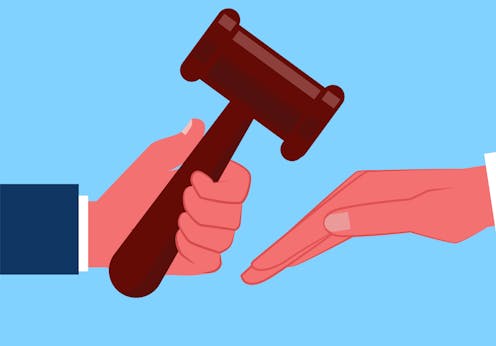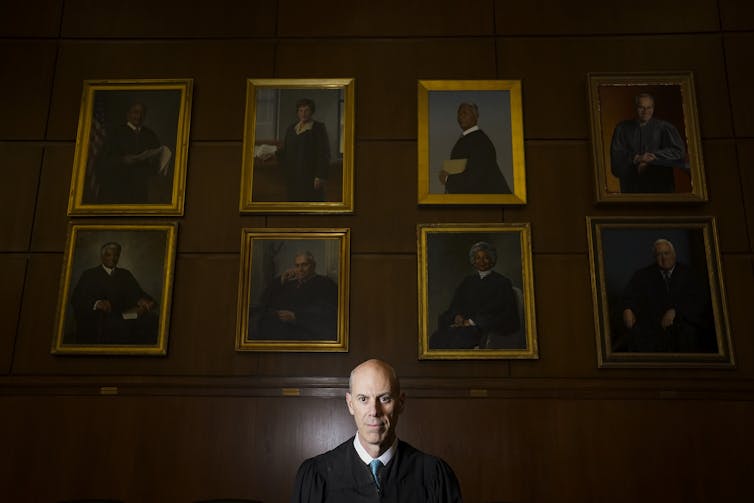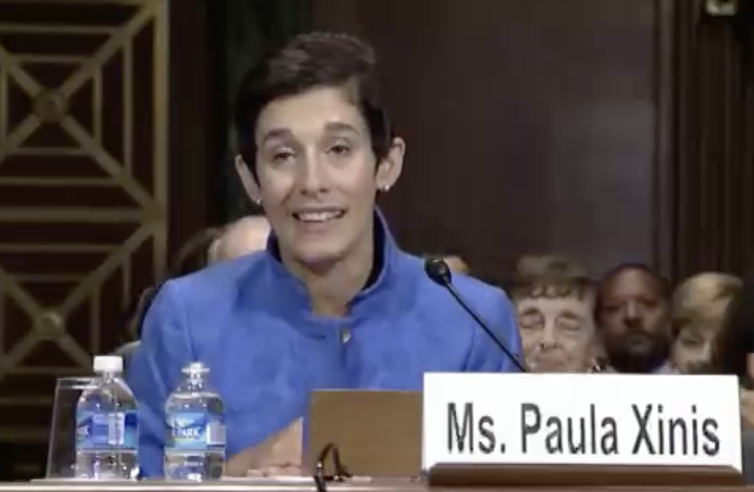‘I never issued a criminal contempt citation in 19 ½ years on the bench’ – a former federal judge looks at the ‘relentless bad behavior’ of the Trump administration in court
- A former federal judge, James Boasberg, has accused the Trump administration of “relentless bad behavior” in court, including disregarding his order to halt deportations to El Salvador.
- Two judges, Boasberg and Paula Xinis, have clashed with government attorneys over their failure to follow orders, with Xinis citing the government’s “repeated refusal to provide even the most basic information” as a reason for her frustration.
- The Trump administration has made public statements disparaging the judges, including calling Boasberg a “Radical Left Lunatic Judge” and describing Xinis as a “Marxist judge” who “now thinks she’s president of El Salvador.”
- Judge Boasberg believes that the government’s behavior constitutes contempt of court and has probable cause to hold them in criminal contempt, while Judge Xinis is still trying to determine whether the government will comply with her earlier order to facilitate the release of a deportee.
- The situation highlights the tension between the executive branch and the judiciary, with some arguing that the judges are overstepping their authority by holding the administration in contempt, while others see it as necessary to uphold the rule of law and protect the integrity of the court system.

Legal battles between the Trump administration and advocates for deportees flown to prison in El Salvador have turned into conflicts between the government and the judges overseeing those cases. One federal judge, James Boasberg, accused Trump administration lawyers of the “willful disregard” of his order in March to halt those flights, saying there was “probable cause” to hold officials in criminal contempt. Another federal judge, Paula Xinis, strongly chastised government lawyers for their failure to follow her order – affirmed by the U.S. Supreme Court – to “facilitate” the return of a man, Kilmar Abrego Garcia, wrongly deported to El Salvador. Xinis cited the government’s “repeated refusal to provide even the most basic information as to any steps they have taken.”
All this happened as administration officials made public statements disparaging the judges. Trump aide Stephen Miller described Xinis as a “Marxist judge” who “now thinks she’s president of El Salvador.” President Donald Trump had earlier called Boasberg a “Radical Left Lunatic Judge” in a social media post and demanded his impeachment.
Politics editor Naomi Schalit interviewed Dickinson College President John E. Jones III about this extraordinary conflict. Jones is a former trial lawyer, former federal judge, and a one-time GOP candidate for the U.S. House.
Right now we’re seeing two judges have a tough time with attorneys from the government. What governs behavior in the courtroom?
For all the time that I was on the bench, and certainly before that, it was a pretty awe-inspiring thing to go into federal court. The federal court was the big leagues; you just didn’t mess around with federal judges. It was a good way to get your head handed to you, not because judges have hair triggers, but simply because there is a certain decorum that obtains in federal court, a gravity about the proceedings. It’s deference to the court and working within the boundaries of professional ethics. It’s being respectful when the court asks you a question. It involves never criticizing that judge in a personal way outside the courtroom, no matter how much you may disagree with the judge.
I’m struck by the discourteousness of the government attorneys. They’re treating life-appointed district judges like they’re just impediments to what they want to do. It is something that has not ever happened, I think, in the annals of federal jurisprudence.

Carolyn Van Houten/The Washington Post via Getty Images
Attorney General Pam Bondi said Boasberg was “trying to protect terrorists who invaded our country over American citizens.” Is this unusual coming from a U.S. attorney general?
I think we’re seeing unusual behavior from the Department of Justice in every single high-profile instance. I have never seen anything like it.
Even in the most strident disputes, I do not recall an attorney general of the United States or the DOJ senior leadership team so personalizing their criticisms of individual district judges. It borders on unethical, and these are, in many cases, contrived and ad hominem attacks on the integrity of these judges.
Besides professionalism and ethics, one of the reasons you’ve not seen it before is because it puts the DOJ attorneys who are out there on the line in a very difficult spot in front of the judges. You need only look to the unfortunate DOJ career attorney who was suspended and fired when he essentially did nothing more than fulfill his duty of candor to the court in answering questions.
What is expected of an attorney in the courtroom?
In federal court, attorneys need to bring their A game. The proceedings move more quickly. The requirements to be well-versed in the law and the facts are much greater. The judges are of a different caliber than in some state courts and county courts. So you you have to be on the ball.
What judges really don’t like are circumstances where attorneys are being disrespectful to them, where they’re blatantly being disingenuous and where they are unresponsive to the court’s entreaties. Judges practice law before they get on the bench; they understand that lawyers have a duty to zealously advocate for their client. But when lawyers appear to be misrepresenting what is taking place, that is a cardinal sin in federal court.

U.S. Senate Committee on the Judiciary
Can you connect what’s going on with Judge Xinis to Judge Boasberg’s finding that probable cause existed to hold the Trump administration in contempt?
Judge Boasberg tied it up beautifully in the memorandum opinion he wrote – the whole panoply from when the president’s Alien Enemies Act proclamation was signed in the middle of the night but not published until the next day, to the fact that three airplanes flew deportees to El Salvador after Boasberg had ordered them not to.
It’s one big show of contempt for the court, rife with dishonest behavior, and I think Boasberg is entirely right to vindicate the authority of the court and commence these contempt proceedings.
In the case of Judge Xinis, she’s not there yet. What she’s doing, in stages, is attempting to test the government’s compliance with the word “facilitate.” The Supreme Court had upheld her earlier order, saying “The order properly requires the Government to ‘facilitate’ Abrego García’s release from custody in El Salvador.”
I don’t think the government’s going to do anything. The government’s position now is, if they don’t like any single thing that a federal judge does, they immediately appeal it with the idea that they want to get it to the Supreme Court. Assuming that the appeal is denied, or is granted, that means that down the road, there’s a showdown.
Unfortunately, in Xinis’ case, I think the situation calls for some clarification. The government’s going to just be obdurate and they’re going to continue to be difficult and espouse their definition of “facilitate” versus what I think is a commonsense reading of the Supreme Court’s opinion.
I don’t think the Supreme Court in any way meant for the government not to bring Abrego Garcia back. But in writing the opinion they were too soft, afraid of traipsing into the executive’s power to run foreign affairs.
You have two judges seriously considering holding someone in the Trump administration in contempt, possibly even criminal contempt. What does it mean for a judge to be in that specific position?
I never issued a criminal contempt citation in 19 ½ years on the bench against anyone or any entity. Never.
The only contempt that I was ever in the business of issuing was civil contempt. Typically it would happen in a civil case when somebody wouldn’t produce a particular record.
But in Boasberg’s case, I think it’s the relentless bad behavior of the government, as he details amply in his opinion, that has gotten him to this point. He’s not going to allow the bad behavior of the government to go unpunished. It’s a signal to the government that he sees their behavior in the worst possible light.
Could the president pardon anyone Boasberg convicts of criminal contempt?
I think he probably could. We’ll see. I think from Boasberg’s standpoint, he can play that out in his mind and say, “This might be an exercise in futility.” But I don’t think that’s the point. I think that the point is that he’s got to vindicate the authority of the court – and that happens even if the executive chooses to exercise the pardon power.
![]()
John E. Jones III does not work for, consult, own shares in or receive funding from any company or organization that would benefit from this article, and has disclosed no relevant affiliations beyond their academic appointment.
